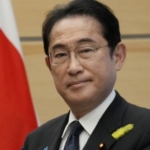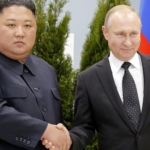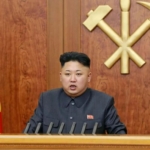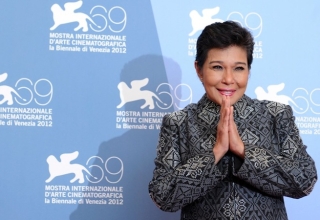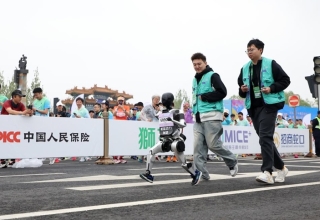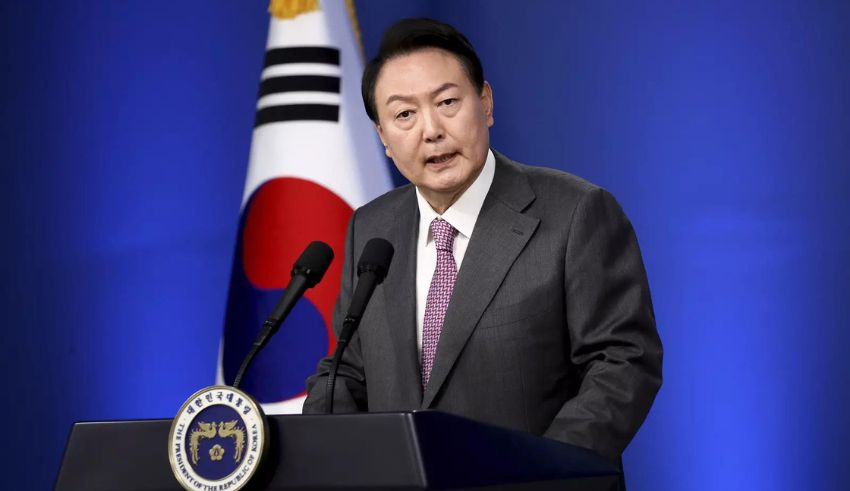
In the aftermath of an enigmatic summit between North Korea’s Kim Jong Un and Russia’s President Vladimir Putin, South Korean President Yoon Suk Yeol delivered a cryptic warning that reverberated through the hushed corridors of geopolitics. Yoon’s cautionary words hinted at a shadowy nexus of intrigue involving South Korea, its allies, North Korea, and Russia—an unsettling puzzle that began to unravel against the backdrop of a highly secretive summit.
The Veil of Uncertainty
Kim Jong Un of North Korea set off on a journey steeped in mystery, traveling to Russia for a secret summit with President Vladimir Putin. Before this covert meeting, American officials mused ominously that the two leaders may be about to arrange an agreement that would give Moscow ammunition for its relentless assault in Ukraine. In exchange, the embroiled in international sanctions pariah state of North Korea would be able to obtain crucial Russian technology—a tale of suspense that gave South Korea, a steadfast friend of the United States, shivers.
Yoon’s Enigmatic Declaration at the UN General Assembly
On the grand stage of the United Nations General Assembly in New York, President Yoon Suk Yeol unveiled a message that seemed to carry more than met the eye. With an air of gravitas, he proclaimed, “While military strength may vary among nations, through unyielding solidarity and unwavering adherence to our principles, we possess the means to thwart any unlawful provocations.” But Yoon’s intentions ran deeper than the surface. He utilized this global platform to rally for reform within the UN Security Council—a body that counts Russia as one of its members. A subtle undercurrent of his speech suggested that such reform could find sweeping support if indeed Moscow decided to lend its support to Pyongyang in exchange for weapons.
Yoon deftly outlined the paradox in play: a permanent member of the UN Security Council, entrusted as the ultimate guardian of global peace, potentially engaging in warfare by encroaching upon the sovereignty of another nation while receiving arms and ammunition from a regime that blatantly disregards UN Security Council resolutions. His warning was unmistakable—a call to vigilance against the shadows of intrigue.
Keep Reading
U.S. Joins the Chorus of Concerns
In a synchronized echo of President Yoon’s concerns, U.S. Secretary of State Antony Blinken, in his own address to the UNGA, raised his voice against the obscure backdrop of geopolitics. He reiterated the call for UN Security Council reform while leveling an accusatory finger at Russia, insinuating that it was seeking weaponry from North Korea. The harmonious alignment of views accentuated the profundity of the situation and the shared apprehensions among key global players.
Kim Jong Un’s voyage to meet Putin marked a watershed moment—the North Korean leader’s first overseas trip since the grip of the coronavirus pandemic. For five hours, behind tightly sealed doors, the two leaders engaged in what the Kremlin cryptically dubbed “very substantive” discussions.
Desperation and Ambition in the Shadows
As the Ukrainian conflict dragged on, Moscow’s desperation for fresh ammunition supplies became palpable. In parallel, North Korea ramped up its relentless weapons testing endeavors, nurturing dreams of nuclear prowess. These intertwined interests cast a haunting spotlight on this geopolitical enigma—an intricate dance of nations seeking to address their unique but interconnected challenges in the dimly lit corridors of global affairs.
